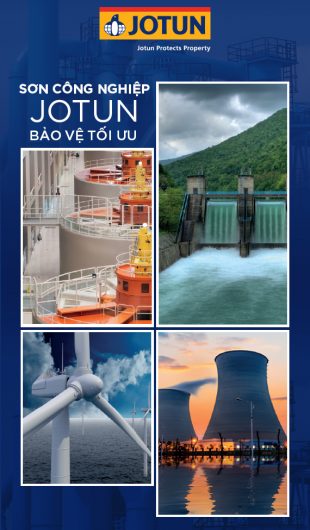What to know before attracting investments from private equity firms
Private equity funds can bring Vietnamese businesses more than simple capital: they can help in other aspects of operatio, including corporate governance, business ideas, networking, and experience sharing.
With high economic growth and a stable political environment, Vietnam has become an attractive destination for private equity (PE) funds. In addition to some well-established Vietnam-based PE firms, such as Mekong Capital, VinaCapital, and Vietnam Investments Group, there are a growing number of offshore PE firms looking for investment opportunities in Vietnam.
What is a private equity fund?
PE firms invest in private companies, or engage in buyouts of public companies, sometimes resulting in the delisting of public equities. The holding period by PE firms is usually 3-7 years, after which they will divest from the investee companies to realise profit. PE firms, therefore, are different from strategic investors who target long-term investment in companies that can create synergy with their existing businesses.
What are the most common types of PE funds in Vietnam?
In Vietnam, the most common types include growth-oriented funds that invest into companies with high growth potential or distressed PE funds that invest in companies that have financial distress and need support in terms of capital and corporate governance to restructure and turn around. Most PE funds in Vietnam only invest a minority holding, with the common deal size between $5-50 million.
In addition, Venture Capital funds that target investments in tech startups and young companies have been operating in Vietnam for quite a long time, but there has been a growing interest recently. Some of the famous Venture Capital funds include IDG Ventures, CyberAgent Ventures, and DFJ VinaCapital.
Other than these common types of PE strategies, Vietnam has also witnessed the rise of buyout funds – funds that invest controlling interest in larger and more mature businesses.
How PE firms can create value for their portfolio companies?
The common strategy of PE firms is to exit the investment after the investment period (3-7 years) and realise investment returns. The short investment period and other strict investment conditions raised doubts among private companies as to whether PE funds could bring sustainable value to their business. After the failures of Ba Huan-VinaCapital or The KAfe-Cassia Investments, many people viewed PE firms as focusing on taking advantage of businesses or trying to take control of the companies from their owners to benefit themselves, instead of adding value to the businesses. This understanding is incorrect. In fact, in many of the cases, PE firms made significant contributions to the success of businesses.
By contributing capital to private companies – usually young and small businesses that have little or no access to capital from traditional channels – PE funds can provide financial support for businesses to quickly scale up.
Additionally, PE firms contribute to the improvement of corporate governance and operations. To add or even create value to the investee companies, PE firms bring in industry experts and talent and provide advice in terms of corporate governance, strategy, digital transformation, branding, and marketing. Moreover, with a large network and relationships, PE firms also support the investee companies to approach customers, partners or acquire talent. As one recent example, the participation of Mekong Capital has helped Mobile World become the retail empire it is today.
What to know before calling for investment from PE funds
Being professional financial investors, PE firms often set out strict investment conditions and requirements to manage downside risks. Therefore, there are some key aspects that private companies should be aware of before starting their fundraising process with PE funds:
• Ownership and business structure: Vietnamese private companies often have a scattered ownership structure or unplanned business structure. Therefore, to make it easy and attractive for investment, it is recommended that private companies should review their ownership and business structure to make it “investor-friendly.”
• Corporate governance: While corporate governance is not necessarily an advantage for private companies, an enthusiastic and capable management team and a transparent financial reporting system with reliable financial information would be a big advantage and will have a positive impact on the investment decision as well as investment value.
• Risk and return requirements: PE firms often have a high return requirement to compensate for the high risk of investing in private companies. According to a survey on PE activities in Vietnam conducted by Grant Thornton in 2018, most investment funds require a rate of return of over 20 per cent or even over 25 per cent, while strategic investors only require a rate of return between 12-18 per cent. The higher return requirement by PE investors would translate into a lower valuation and price.
• Basis of valuation: For companies that generate stable cash flows or profit, the common method of valuation is to use the EBITDA (earnings before interest, tax, depreciation, and amortisation) multiple of comparable companies or comparable transactions. For startup companies, especially technology companies with little or no track record of profit, the common valuation multiple is Price to Sales, or more creatively, operation ratios such as Price to Orders, Price to Users…
It is a common practice that these figures would be subject to normalisation adjustments (for EBITDA or sales) or subject to due diligence results. In our experience, if the due diligence results are much too different from the original data, it could be a key deal breaker. Therefore, companies should be able to estimate these adjustments in advance to avoid surprises at closing.
• Investment structure: In order to protect their benefits, PE funds in Vietnam normally structure the investments in the form of equity investment plus a put option to guarantee a certain rate of return; or in the form of convertible loans; or a combination of both. With these strategies, PE funds can put into the agreements terms to protect their interests, like collateral, conversion price, earn-outs or anti-dilution provisions, which may be quite complicated. The owners of private companies need to have a certain level of knowledge and experience to be able to understand and negotiate or to engage professional advisers.
In conclusion, raising capital from PE funds is a complex process. It is advisable that business owners should understand your own needs and capabilities, as well as understand the requirements of your buyers. Only then would the deal be a success.
Grant Thornton Vietnam is a leading international auditing and consulting firm that provides a complete range of services including audit, tax, advisory and outsourcing services. We have had more than 20 year experience in supporting businesses and investors to complete deals.
Source: vir.com.vn









